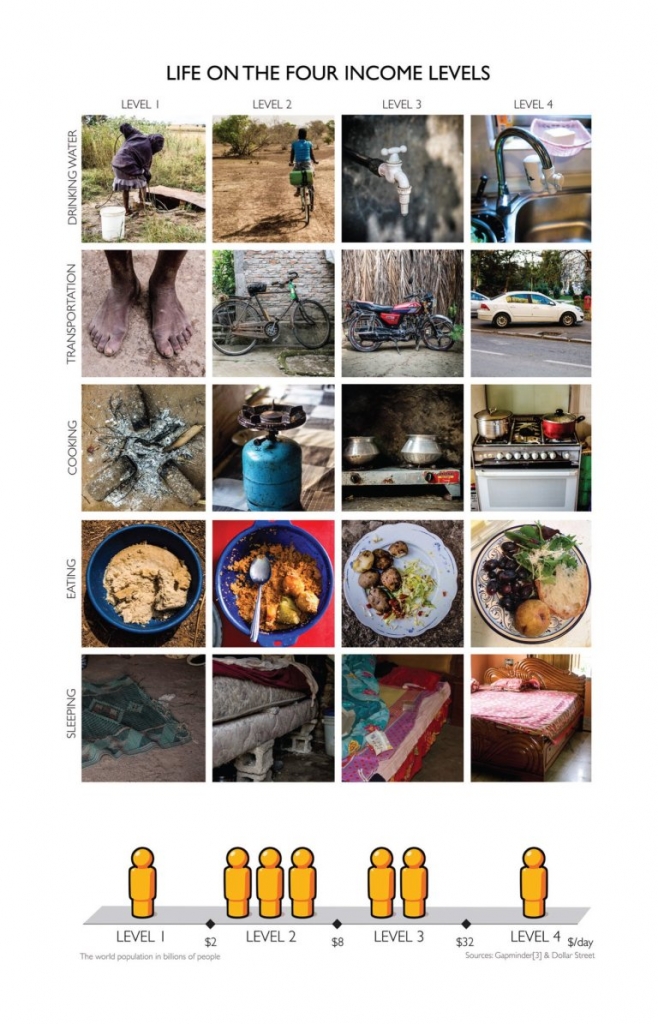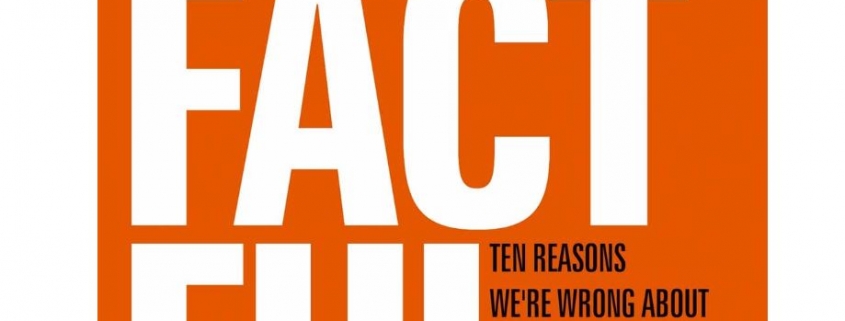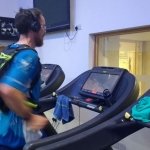Why the World’s a Much Better Place Than You Think It Is
This is a blog post about the book FACTFULNESS by the late, great Hans Rosling (and family). I love this book, keep picking it up and reminding myself what’s in it, and heartily recommend it to anyone and everyone. You can get it here from Amazon (we get paid by Amazon if you buy this way – the cost to you is the same), or save yourself a few quid and get a copy from the library. Or if you’re more interested in a short video than reading a book, check out Hans speaking at TED at the end of this post.
My Mindset Change: Powered by Travel
For the past three years, Ju and I have effectively been retired, and I’ve been wondering ‘how’ for all of that time. How the hell did we manage to quit ‘proper’ work, forever, aged 43? I’m not talking about the financial side of it, the numbers are all easy enough to understand if not to implement (this free guide explains it all), but the psychological side of it is a mystery and a fascination.
How did we make that shift – from feeling the need for a big house, flashy job title, and a wedge of money appearing every month – to being happier with far, far less? I’m still trying to get my head around it, but one aspect of this shift I’m sure about is a drastic drop in my personal cynicism. Seeing the world in a more positive light, looking more for opportunity rather than restraints, being realistic but also becoming a wide-eyed-dreamer at the same time, all made a massive difference to my ability to contribute to what we did – to live this daft dream life rather than sitting stewing in an office somewhere.
My mindset change was powered by a combination of two things, I think: meeting relentless optimists out on the road, plus seeing the world day-after-day with my own eyes. For two years we had no TV, listened to little radio and read no newspapers, and our opinions started to be influenced far more by what happened around us rather than sound bites and news articles. For example, before we’d set off we saw regular headlines about levels of unemployment and debt in several European countries, and we felt afraid as we entered some of the worse-affected countries, expecting to be robbed at some point by desperate locals. We can’t dispute those newspaper headlines, but were they giving us the full picture? I very much doubt it. For example, Spain’s unemployment rate while I stood nervous by Dave on the first day of our first long tour, was a massive 20% (it peaked at around 27% in 2013). But look back a wee way and there were similar levels of unemployment around 1995 – perhaps this latest crisis too would pass? Spanish unemployment has since steadily fallen to around 15%, but I’ve not seen many headlines screaming “Spanish Unemployment Gradually FALLING!”.
Over those couple of years, and over the years of travelling since then, this gap in my mind in the ‘reality versus the news’ has grown and grown. The stories being pushed my way on the telly and radio seem disjointed with the reality of the world around me? For sure, terrorists commit terrible atrocities, large numbers of people migrate away from poverty and war, stock markets crash and world leaders scream at each other: annihilation! By ‘eck, it’s enough to have you stocking up on AK-47s, flint stones and cans of beans, only none of that seems to be really affecting me? If I poke my head out the door and look and up and down the street, life steadily goes on, quietly, with little drama?
A Quicker Way: Read FACTFULNESS
For the first time I got a great insight why there’s this disjoint between what I see and what I see on screens or hear through the radio when I read FACTFULNESS (twice – I read it again as soon as Ju had read it). This is quite some book! If I’d held it in my grubby paws back in 2011, I’d have not needed to bother with all that pesky travelling (tongue-in-cheek), Hans had the answers already. In the book Hans broadly covers two areas:
Area 1: The fact almost everyone THINKS the world is a worse place than it is
Area 2: Our human instincts make us natural pessimists
Let’s have a quick look at these two areas for ourselves, just to give you a flavour for what the book’s about.
Area 1: We all THINK the world is worse than it is
Hans and his team have been asking people basic, multiple-choice questions about the world for decades, questions like this:
“In the last 20 years, the proportion of the world population living in extreme poverty has:
a. almost doubled
b. remained more or less the same
c. almost halved”
They’ve posed the questions to thousands of people, from Nobel Laureates to investment bankers, to doctors, journalists, business leaders, everyone. And everyone gets them wrong, badly wrong, so wrong that monkeys would easily outperform us on average, no matter our level of education or achievement, based on purely random guesses. Oh, the answer to the question above is c, by the way. I can’t recall seeing any news headlines about this simply stunning and beautiful fact. If you fancy you can beat the chimps – have a go at the full test here at gapminder.org.
Area 2: The human instincts we possess which make us pessimists
So, why do we do so badly on these simple tests? Hans pondered this question for years, and spent the final two years of his life creating this book with his son and daughter-in-law to give his answers (in his final year he knew he was dying with cancer, and still ploughed all his efforts into it) . Cutting to the chase, these are the reasons Hans gives, for why we see the world as such a bad place:
- We naturally get interested in bad news. A newspaper headline screaming “FLIGHT 376 LANDS SAFELY AT BERLIN” will pull in roughly zero readers. For this reason the news is, and always will be, generally negative in view. Hans says this is fine, just understand the news will never give you more than a small part of the picture. I think of the news as looking at the world through a drinks straw – it often shows you only a tiny, tiny bit of it, and only for a moment in time.
- We’ve inbuilt human instincts which make us read many situations incorrectly. If we see something bad increasing, we assume it will keep increasing. If we’re afraid, our judgement is impaired. We like to simplify situations, so we can quickly find someone to blame and then mentally move on. We tend to generalise and stereotype. We react to someone telling us something is urgent, when it almost never is. There are more, and Hans explains them all with examples and eloquence. Check out this page in gapminder.com for the full set of instincts, with a summary of how we can tackle each of them.
Hans’ Suggestion for How to See the World
Hans’ suggestion is simple: recognise the fact we have these instincts, and try to keep them under control. When forming an opinion on something which is important to us, we should try to do it based on facts rather than whatever we just feel to be the right answer. Hence the book title: FACTFULNESS. The easiest way to do this is to accept the fact the world is FAR less dramatic than the news would have us believe. Spend a couple of years travelling across Europe and you’ll see life across our continent generally goes on undramatic-ally, day to day, without much massive stuff happening to you. Believe me, it can be a right job thinking up what to write on your travel blog!
Life on the Four Income Levels
In among all of these questions and answers, Hans weaves a picture of the world population as it really is, pointing out that population growth will almost certainly stop growing in the coming decades, and putting an end to the terms ‘Developed’ and ‘Developing World’. In this latter area he describes how humanity is gradually, relentlessly shifting out of poverty. The idea that there’s a group of countries which can be nicely popped into a ‘Developing/Third World’ box, and another into ‘Developed/First World’ box, no longer makes any sense, too much progress has been made for too many countries, and instead Hans suggests we categorise people into four income levels:
Level 1: Cooking on an open fire, drinking water has to be collected from a muddy hole on foot, you eat a basic diet or porridge. You live on roughly $1 a day, and cannot afford basic medical care like antibiotics. This is extreme poverty. A billion people live this way.
Level 2: You have a gas bottle to cook on, your family can afford a push bike and you collect water with it, you sleep on a mattress sat on concrete blocks. You live on roughly $4 a day. Three billion people live this way.
Level 3: You have a cold water tap in your house, you can afford a moped or motorbike, you have a dual hob to cook on, you have a mattress and basic bed frame. Two billion people live this way on about $16 a day.
Level 4: You have hot and cold running water in your house, you can afford a family car, you have a cooker and oven and can afford to fly on holiday. A billion people live this like, with an income over $32 a day.

Guess where you and I are? Almost certainly we’re both in Level 4, up among the wealthiest people on Earth, and probably somewhere towards the top of that group too. In other words, we’re better off than over 6 billion of the 7 billion people on Earth. We have access to healthcare and education. We’re unlikely to die of starvation. Our children are likely to live to maturity. We have Internet access, and can most likely afford to heat our homes. Each time I see a news article decrying how bad things are in my world, I recall these facts and I’m grateful that while the news might be factually correct, in the wider context of the world, we’re doing pretty well.
Life as a ‘Possibilist’
Interestingly, Hans didn’t like to be thought of as an optimist. He’s drawn criticism from charities, activists and others who feel they have to use our instincts to get us to care about their cause. Hans responds to this by accepting there are great risks to our world: climate change, financial collapse, world war III, global pandemic and extreme poverty. He was no blind optimist, and described himself as a ‘possibilist’ instead. His view was we should see the great strides forward being made by humanity and, if we can balance our inherent negative views with these quiet narratives of uplifting human progress, we’re more likely to develop the hope needed to push forwards into the future.
Watch Hans Speak at TED
This video is one of the most inspiring talks I’ve ever seen.
Cheers, Jay





Great post.
Is there a reason there’s no ‘good news Channel?’
This shows the gap between the very rich and the poor is dwindling, but the perception may be dragging its heels.
In my experience, perception will always be the victor over fact and facts are sometimes hard to come by.
It also suggests that air travel is set to increase 23% over the next 20 years, that’s more than 160 million people in the air…so I’m off to buy shares in Boeing
Kindest…Wayne.
Cheers Wayne. Yep, Hans defends the media a fair bit in the book, explaining that news is generally negative as otherwise it wouldn’t get viewers. His view was our natural instincts and fears make us focus heavily on bad stuff. It seems to me we’ve shifted very quickly (in evolutionary terms) from a live-or-die lifestyle to a far safer one, and our brains just haven’t had time to evolve to the point we crave positive news, the kind of news which can actually help us in our modern environment. Knowing that a terrorist atrocity took place the other side of the world doesn’t help me one bit in my day to day life, in fact it generates unnecessary anxiety. Seeing someone overcome adversity on the other hand can inspire me, having the opposite effect.
Agreed, facts can be hard to come by, and reading research papers is time consuming compared with just mentally grabbing a headline.
Right, I’m off to the gym. Cheers, Jay
Hi
Morrissey said “Stop watching the news, because the news contrives to frighten you” (Spent the day in bed).
He’s right of course. It’s the curse of 24hr rolling news, they need to fill those hours and increase ratings. I call it “Newsertainment” and don’t watch. Bad news sells papers.
Hans Rosling’s population talk on TED is superb. Most politicians are ignorant of it. We’re on a conveyor belt to 10-11 billion people that we can’t stop. Then it will plateau before declining. He explains the inevitability perfectly.
By the way, we sold our house. We’ll be full time in Humberto on May 23rd (My 57th birthday).
We’re off to look at a French farmhouse with land near Bergerac.
If we get it I fully expect you to stop by next time you are down that way.
We want to keep Humberto if possible though, as a means to keep exploring.
So, maybe a few months out on the road, maybe more. We don’t know…. and don’t care.
Lee at http://www.gohumberto.com
Good news Lee – huge congratulations! The farmhouse sounds exciting – we’ll keep an eye on your blog to see how you get on and will of course pop by if we’re in the same neck of the woods. Cheers, Jay